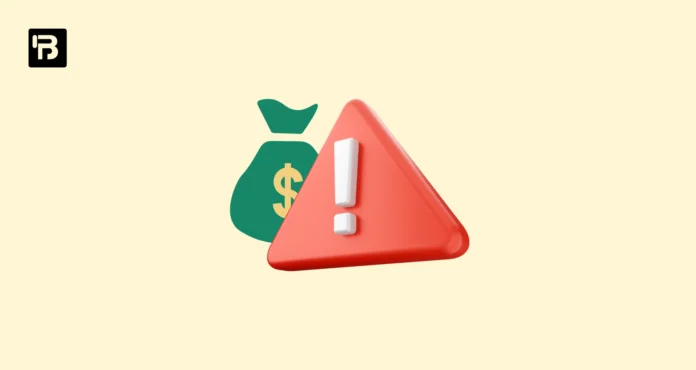Taking out a loan might give you financial support and freedom, but there are hazards involved as well. Before submitting an application for a loan, it is critical to be aware of these risks.
Risks Involved
Here are a few typical dangers related to loans:
- High-Interest Rates:
Loans frequently have interest rates that are higher than secured loans like mortgages and auto loans. The interest rates could be considerably higher if your credit score is lower, which would mean larger interest payments over the course of the loan.
- Debt Burden:
Taking out a loan adds more debt to your existing debt load. It may be difficult to manage several responsibilities if you already have loans or credit card debt, which can cause financial stress.
- Default and Credit Score Impact:
Your CIBIL Score will drop if you don’t make your monthly EMI payments on time and are deemed in default. Any loans or credit cards you use as a result will have a big impact.
- Prepayment Penalties:
If you choose to pay off the loan early, some lenders may charge you a prepayment penalty. If you want to pay off the debt before the loan term is up, these penalties could raise the overall cost of the loan.
- Hidden expenses:
As was previously noted, there may be unstated expenses associated with loans, such as processing fees, late payment fees, or loan insurance costs. The total cost of borrowing may go up as a result of these fees.
- Loan Scams and Fraud:
There is a chance of being a victim of dishonest lenders or loan scams. To minimise such hazards, it’s crucial to work with renowned and established financial institutions.
- Negative Effect on Financial Goals:
Taking out a loan without careful planning can prevent you from reaching long-term financial objectives like home ownership or retirement savings.
- Lack of Collateral Protection:
Since loans are unsecured, no collateral is required to secure them. The lender does not have the right to confiscate any particular asset to recoup their money if you are in default on the loan.
- Loan Churning:
Taking out new loans repeatedly in order to pay off old ones, also known as loan churning, can result in a debt cycle and make it difficult to establish financial stability.
- Less Money for Other Essential bills or Discretionary Spending:
Paying back loans may leave you with less money for other necessary bills or luxuries.
Conclusion
It’s critical to evaluate your ability to repay the loan, search around for the cheapest interest rates and terms, and have a clear repayment strategy in place in order to reduce the dangers associated with loans. Only borrow what you actually need and can comfortably pay back within the specified time range. If you’re not sure if you should take on more debt, think about getting financial guidance.


